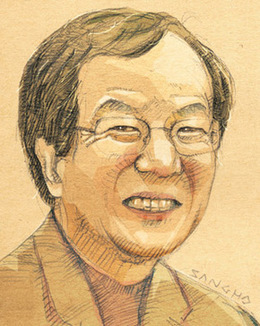Posted on : Jul.19,2006 12:15 KST
Modified on : Jul.20,2006 12:40 KST
 |
|
[홍세화의수요편지] 빼앗긴 들에도 봄은 오는가
|
Hong Se-hwa, Public Editor for the Hankyoreh
Zbigniew Brzezinski, who was national security adviser and chairman of the National Security Council under U.S. President Jimmy Carter, compared Eurasia after the collapse of the Soviet Union to a great chessboard controlled by the U.S. There is huge asymmetry between the U.S. and South Korea. Take a look at recent cases. South Korea is being forced to pay hundreds of billions of won to decontaminate former U.S. military bases. As is well known by U.S. powers, who responded differently to North Korea’s missile test and Israel’s missile attacks against Lebanon, the impact from such asymmetry on the Korean peninsula is systematic and permanent.
Under the circumstances, the South Korean government should make more of an effort to effect even a small amount of change, but efforts are only made to cover up the government’s incompetence and irresponsibility. So, the South Korean government, with nothing earned in the way of ‘national interest’ from its troop dispatch to Iraq, still has no plans to withdraw its troops from the war-torn country. Unlike South Korea, Japan, which has proven itself a match made in heaven with the U.S., has announced a plan to pull its troops out of Iraq.
And Japan and the U.S. have not pushed for a free trade agreement. South Korean Trade Minister Kim Hyun-jong, who is de facto head of talks on the South Korea-U.S. FTA, said that those opposed to the South Korea-U.S. trade pact need to be able to present evidence of successful development in isolated nations such as North Korea, Libya, Cuba, and Iran in order for their words to have any clout. His remark demonstrates the stereotypically one-dimensional thinking surrounding the blind push for the FTA and, what’s worse, it completely fails to address the asymmetry between South Korea and the U.S.
With regard to a three-year non-disclosure agreement about details of the FTA negotiations, Kim told critics in rebuttal that the agreement also applies to the U.S. What a ridiculous argument of "symmetry" between the situations of the two countries. In an editorial, the Hankyoreh pointed out that it is right to disclose the same level of details U.S. has released to its Congress and advisory committee, but what is even more important is making people aware of the imbalance of the South Korean position. Kim, who bowed to U.S. interests when, in the FTA negotiations, he agreed to allow lawsuits between an investor and another nation, showed his insufficient awareness of the South Korea-U.S. asymmetry by saying the lawsuit system would be an advantage to South Korea.
For South Korea, the U.S. is the world’s most powerful nation, but for the U.S., South Korea is one of many nations. The U.S. is always fully prepared for such talks, and other nations are forced to prepare to argue the smallest of specifics. However, the South Korean government has pushed for FTA talks with the U.S. without releasing well-planned research on the issue beforehand. This represents the ideology of President Roh Moo-hyun.
On July 13, the labor union for journalists staged a strike to protest against the FTA. Journalists at the Hankyoreh joined the action. The union of the Hankyoreh offered to use its Saturday edition to cover the South Korea-U.S. FTA talks on all of its pages, but the offer was rejected. Instead of publishing feature stories about finance, the automobile industry, and real estate, the Hankyoreh should have focused on the FTA talks. While criticism against the FTA talks is under way via editorials and columns, a newspaper must analyze and criticize the talks in depth, for most people still do not know the truth behind the FTA negotiations.
The Hankyoreh must step up its reporting on why South Korea should not be pushing for South Korea-U.S. FTA talks in their current manifestation.

